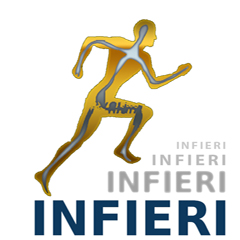Conveners
INTRODUCTION TO ACCELERATORS: ACCELERATORS and THEIR MAIN APPLICATIONS
- Pierre VEDRINE (IRFU-CEA, Université Paris-Saclay (FR), Haed of the Department of Accelerators, Cryogenics and Magnets (DACM))
INTRODUCTION TO ACCELERATORS: THE FUTURE ELECTRON-POSITRON PROJECTS
- Juan FUSTER VERDU (University of Valencia and IFIC, Spain)
INTRODUCTION TO ACCELERATORS: THE FUTURE HADRON and MUON COLLIDERS PROJECTS
- Monica PEPE ALTARELLI (CERN)
FOR the FIRST TIME in this SCHOOL SERIES Lectures and Lab sessions will be dedicated to Accelerators.
This keynote lecture will give an introduction to this multi-facets technological and Physics domain.
Accelerators are key instruments in fundamental research, i.e. in Particle Physics. They are unique probes for exploring the ultimate components of the Matter as well as for getting...
Besides the Fundamental research, accelerators have a wide range of applications from Medicine to Chemistry, Biology, to several Industrial applications etc...and without forgetting the outcomes from accelerator technologies to Magnets, cryogenics etc...
It is an extremely exciting and important period in the HEP Fundamental Research field; the decisions at the worlwide level, on the Future Machines to be built, should be well underway by the time of the School.
An important EU strategy workshop was held January 21-25, 2020 at Bad Honnhef (Germany). The outcomes were presented in June 2020 (see link here below). Besides decisions on the...
Two accelerator technologies are the object of an active R&D since a number of years for building the next electorn-positron colliders. Namely the circular electron positron colliders (CepC and FCC-ee) and the Linear Colliders (ILC and CLIC). This lecture will review the current status of these projects especially at the time of the School.
Dr. Angeles Faus-Golfe is a Research Engineer at...
For electrons and also the protons case
Dr Ralf W. Assmann received his PhD in physics (1995) from the Ludwig Maximilian University, and Max-Planck-Institute for Physics, Munich
Since 2012, as Leading Scientist at DESY Ralph Assmann is working on the development of modern particle accelerators. One focus of his work is the study and development of new accelerator technologies such as...
It is an extremely exciting and important period in the HEP Fundamental Research field; the decisions on the future machines to be built should be well underway by the time of the school.
An important EU strategy workshop was held January 21-25, 2020 at Bad Honhef (Germany). The outcomes were presented in June 2020 (see link here below). Besides decisions on the Chinese side are also...
In order to reach 100 Tera-electron volts (TeV) or even beyond in proton-proton collisions, an active worldwide R&D on novel high field supraconductor magnets is underway. This will be presented in this lecture together with the presentation of: the FCC-hh (the SppC project in China will be presented in the keynote by Jie GAO (IHEP).
This lecture will also mention the importance of the R&D...
This lecture will conclude the different R&D projects for new HEP machines.
Muon colliders can offer collisions of point-like particles at very high energies, since muons can be accelerated in a ring without limitation from synchrotron radiation.
However, the need for high luminosity faces technical challenges which arise from the short muon lifetime at rest and the difficulty of...
Formerly Director of the Joint European Torus (JET) and Director of the French CEA's magnetic fusion research department (DRFC, today IRFM), Jean Jacquinot has been closely associated with ITER for the past quarter century. He is presently a scientific advisor to the French High Commissioner for Atomic Energy and Senior Advisor to the ITER Director-General.
A panel will gather the experts from the Quantum System to the Hardware R&D and industrial world. They will present the state of the art and the main issues to be still confronted and eventual alternatives to this new computing field.
Sonia Contera, is Professor of Biological Physics and
Associate Head of the Department of Physics (Equality, Diversity and Inclusion) at the University of Oxford, UK
https://www2.physics.ox.ac.uk/contacts/people/antoranzcontera.
She is the Author of "Nano comes to life "(Princeton University Press, 2019).
Reviewed by Nature, Nature Physics, New Scientist, BBC, Harvard Business Review…
An active R&D is undergoing worlwide led by academics and research Labs as well as Industrial High Tech Firms: some examples will be presented and discussed here
Nam-Guy Park is distinguished professor at Sungkyunkwan University in South Korea. Considered as one of the precursors of solar cells based on hybrid perovskites, it has especially led to improve the efficiency of the first cells from 3.8% for the first (carried out by T. Miyasaka) to 6.5% in 2011 and 9% in 2012.
In 1995, NG Park obtained his PhD in “Inorganic Solid State Chemistry” at...
More information about the research by Prof Rafael Yuste and his research group at Columbia U. in the link here below
This final lecture will be given by the Head of the TECHNOLOGY DEPARTMENT at CERN
